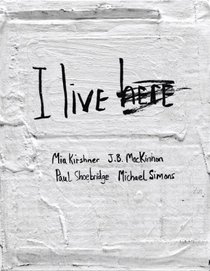Search -
I Live Here
I Live Here
Author:
I Live Here is a paper documentary?an intimate journey to humanitarian crises in four corners of the world: war in Chechnya, ethnic cleansing in Burma, globalization in Mexico, and AIDS in Malawi. — — ~THE BOOK~ — I Live Here is a visually stunning narrative ? told through journals, stories, images, and graphic novellas... more »
Author:
I Live Here is a paper documentary?an intimate journey to humanitarian crises in four corners of the world: war in Chechnya, ethnic cleansing in Burma, globalization in Mexico, and AIDS in Malawi. — — ~THE BOOK~ — I Live Here is a visually stunning narrative ? told through journals, stories, images, and graphic novellas... more »
ISBN-13: 9780375424786
ISBN-10: 0375424784
Publication Date: 10/14/2008
Pages: 320
Rating: 1
ISBN-10: 0375424784
Publication Date: 10/14/2008
Pages: 320
Rating: 1
5 stars, based on 1 rating
Genres:
- Arts & Photography >> Photography & Video >> Photo Essays
- Nonfiction >> Current Events >> Poverty >> General




